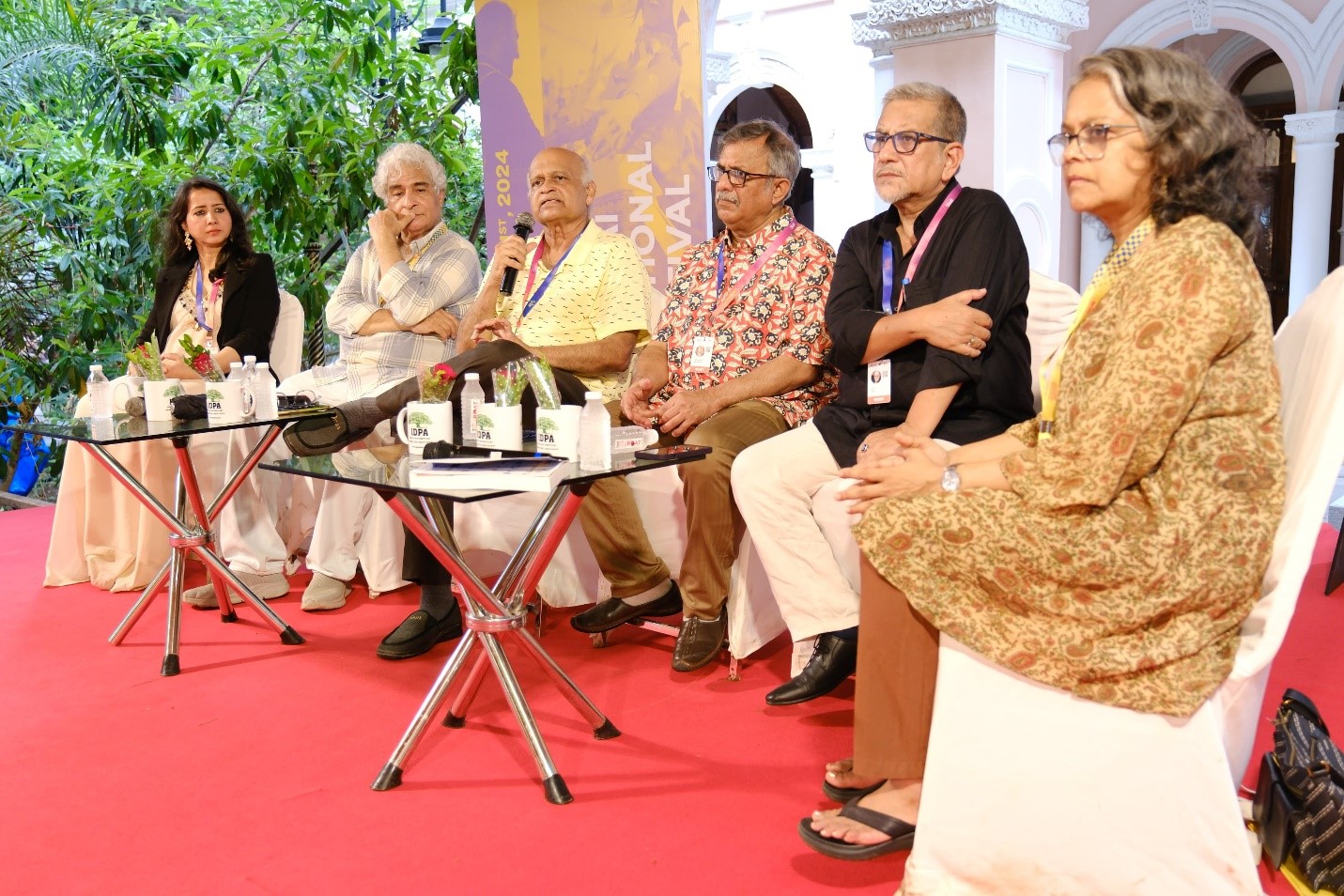Ministry of Information & Broadcasting
Open Forum at 18th MIFF discusses solutions for financial viability of docu films
Building a paying audience is crucial for the financial viability of documentaries: Sanjit Narwekar
Creating a culture of documentary viewership in India is essential: Premendra Mazumder
Modern tech has reduced cost of documentary film making: Dharam Gulati
People value paid content: Utpal Datta
Evolving with technology and crowdfunding can boost documentary filmmaking: Dr. Dev Kanya Thakur
Posted On:
20 JUN 2024 4:16PM by PIB Mumbai
Mumbai, 20 June 2024
On the sidelines of the ongoing 18th Mumbai International Film Festival, the Indian Documentary Producers Association (IDPA) organized an Open Forum on the topic ‘Creating new opportunities for documentary-funding’. Esteemed speakers from the film industry shared their insights, highlighting the challenges and potential solutions for the financial viability of documentary films in India.
Opening the discussion, Shri Sanjit Narwekar, a V. Shantaram Awardee and National Award winner, emphasized the importance of developing a paying audience for documentaries in India. He noted that until such a culture emerges, documentary films cannot be made financially viable. He pointed out that while people are ready to finance fiction films, the lack of a revenue model hampers funding for documentaries. “ Some filmmakers finance their own films which gives them artistic freedom. We have seen government, corporate and crowdsourcing funding for documentaries, but none has really worked for filmmakers. People who spend their money always have some strings attached to it,” he said.
The veteran filmmaker also added that new technology and streaming platforms like MUBI are providing more screening avenues for documentaries. He posed the question of whether Indian documentary filmmakers could conceive a project like 'Commandant’s Shadow' given the current financial constraints.

(InPhoto From right to left :Dr. Dev Kanya Thakur, Shri Dharam Gulati, Shri Sanjit Narwekar, Shri Premendra Mazumder, Shri Utpal Datta and Ms Maya Chandra participating in an Open Forum discussion at 18th MIFF)
Shri Premendra Mazumder, a film critic, author, and organizer, echoed this sentiment by stating that Indian audiences do not have a popular culture of watching documentaries, and a paying audience base must be established first. He noted that film festivals like MIFF play a crucial role in this regard. Shri Mazumder highlighted the global scale of the documentary film industry, valued at around $12 billion, but lamented that India's share is minimal. “With approximately 18,000-20,000 films receiving certifications annually in India, only around 2,000 are feature films. Rest are documentary films. But we are not seeing this whole chunk of films being screened anywhere. Organizations like NFDC go a long way in promoting work of new documentary filmmakers”, he opined.
Shri Dharam Gulati, a Producer, Director, Director of Photography and an academician, pointed out the need for OTT platforms dedicated to documentary films. He observed that modern technology has reduced the cost of documentary filmmaking, enabling filmmakers to self-fund their projects. Gulati stressed that commitment, not just financial gain, is crucial for documentary filmmakers. He proposed that the government provide tax deductions to corporates using CSR funds for documentaries and mandate multiplexes to screen documentaries in exchange for tax benefits.
Sharing a differing perspective, Shri Utpal Datta, a writer & Professor of Practice at Assam Down Town University highlighted the challenges of complex bureaucratic processes in obtaining government funding. Shri Datta emphasized that people value paid content over free offerings and suggested that documentary film festivals should always charge for attendance.
Dr. Dev Kanya Thakur, an independent filmmaker and freelance writer, emphasized the need for documentary filmmakers to evolve and explore emerging platforms like YouTube and OTT services. She suggested seeking funds from organizations with specific themes and utilizing corporate funds. Dr. Thakur proposed institutionalizing documentary filmmaking to attract funding and recommended that different stakeholders, such as IDPA and the Bitchitra collective, collaborate to finance documentaries and establish fellowships for aspiring filmmakers. She also highlighted the potential of crowd funding and the importance of creating compelling content to attract viewership. Thakur noted the increasing number of women documentary filmmakers, helping to close the gender gap in the industry.
The session was moderated by Ms. Maya Chandra, a film production entrepreneur, who observed that youngsters seem less passionate about documentaries compared to feature films. She called for discussions on establishing a separate body or ecosystem for documentary film promotion. Chandra mentioned that corporate funds have recently started flowing into documentary films in states like Karnataka and suggested that IDPA could partner with theater chains like INOX and PVR to screen documentaries, thereby cultivating an audience culture.
* * *
PIB Team MIFF | Nikita/ Bibin/ Darshana | 49
Follow us on social media: @PIBMumbai
@PIBMumbai  /PIBMumbai
/PIBMumbai  /pibmumbai
/pibmumbai  pibmumbai[at]gmail[dot]com
pibmumbai[at]gmail[dot]com  /PIBMumbai
/PIBMumbai  /pibmumbai
/pibmumbai
(Release ID: 2027056)
Visitor Counter : 813